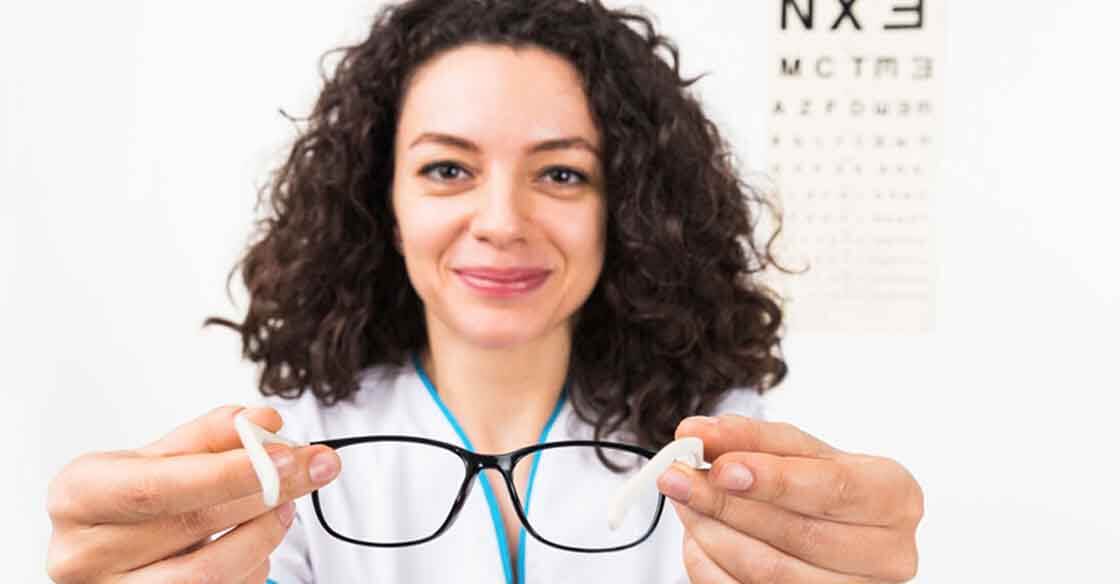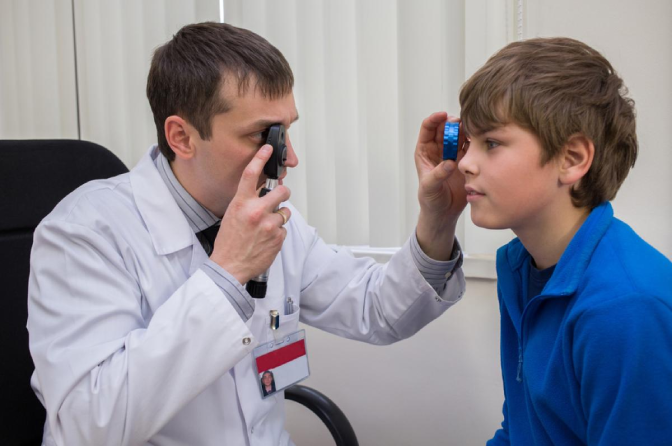The Importance of Regular Eye Exams: Insights From a Skilled Ophthalmologist
Routine eye examinations act as an essential component of health care that extends beyond mere vision adjustment. A skilled eye physician can supply understandings right into just how these assessments not only detect typical eye conditions but also expose underlying health and wellness concerns that may or else go unnoticed. The silent progression of illness such as glaucoma and macular deterioration underscores the need of very early discovery. Comprehending the regularity and value of these assessments can ultimately affect one's lasting health and wellness trajectory, raising the inquiry of just how usually people ought to prioritize their eye wellness in the context of general health.
Advantages of Routine Eye Tests
Although numerous people may forget the significance of normal eye examinations, these analyses play an important duty in maintaining general wellness and wellness. Normal eye evaluations offer not only to evaluate vision yet also to find early signs of systemic health and wellness issues, including diabetes and high blood pressure. By recognizing these conditions at their beginning, people can get timely treatments, substantially enhancing lasting end results.
In addition, eye exams can aid in checking existing wellness issues, ensuring that any kind of changes in vision or eye wellness are without delay addressed (optometrist). The evaluations enable customized referrals concerning eyeglasses, lifestyle adjustments, and safety measures versus prospective eye pressure or damages
Beyond physical health, the benefits of normal eye tests extend to boosting top quality of life. Inevitably, prioritizing eye exams cultivates a positive method to health monitoring, encouraging individuals to take cost of their health.
Common Eye Conditions Detected
Regular eye exams are crucial in identifying a range of common eye problems that can substantially affect vision and overall wellness. Amongst the most prevalent problems determined during these exams are refractive errors, including nearsightedness (nearsightedness), hyperopia (farsightedness), and astigmatism. These problems typically show up as blurred vision and can be conveniently corrected with prescription glasses or call lenses.
One more usual concern is glaucoma, a group of eye illness that harm the optic nerve, commonly connected to enhanced intraocular stress. Early detection is crucial as it can avoid irreversible vision loss.
Age-related macular deterioration (AMD) is another substantial problem that impacts central vision, specifically in individuals over 50. Ultimately, diabetic person retinopathy, an issue of diabetic issues, can result in severe vision disability otherwise checked regularly. Through thorough eye exams, these conditions can be determined early, enabling timely administration and treatment to protect vision and enhance lifestyle.
Importance of Very Early Discovery
Very early detection of eye problems plays a crucial role in maintaining vision and stopping substantial wellness complications. Numerous eye conditions, such as glaucoma, diabetic person retinopathy, and age-related macular degeneration, can progress calmly without obvious signs in their beginning. By the time symptoms manifest, irreparable damage might have happened, causing long-term vision loss.
Normal eye examinations promote early medical diagnosis, enabling for timely treatment and treatment. For example, treating raised intraocular pressure can stop the onset of glaucoma, while taking care of blood sugar degrees can substantially decrease the threat of diabetic retinopathy. In addition, problems like cataracts can be efficiently taken care of with medical intervention when identified early.

Exactly How Frequently Should You Check Out?
Determining the regularity of eye examinations is essential for keeping optimum eye health and wellness and vision. The general referral for adults is to have an extensive eye exam each to 2 years, depending upon individual threat variables and age. For individuals aged 18 to 60, a visit their website test every two years is usually enough if no vision issues are existing. Nevertheless, those over 60 should consider yearly exams, as the risk of age-related click conditions enhances substantially.
Individuals with specific threat variables, such as a family members background of eye condition, diabetic issues, or existing vision issues, may need more frequent evaluations. Children should have their initial eye test at six months of age, adhered to by additional exams at age three and before entering school. Normal exams throughout youth are critical as vision can change rapidly during developmental years.
Ultimately, the frequency of brows through should be tailored to every person's circumstances, including lifestyle, work-related threats, and any kind of pre-existing eye problems. Consulting with an eye treatment expert can offer individualized referrals, making certain that your eye wellness is regularly kept track of and maintained.
Tips for Your Eye Test
Planning for your eye exam can boost the efficiency of the go to and ensure a thorough analysis of your eye health and wellness. To optimize your time with the eye physician, it is crucial to collect appropriate information prior to your appointment. Begin by putting together a checklist of any kind of medications you are presently taking, including over the counter medications and supplements, as these can influence eye health.
Furthermore, record any kind of symptoms you have experienced, such as blurred vision, discomfort, or migraines. This details will certainly assist your optometrist in identifying prospective concerns. If you put on glasses or contact lenses, bring them along, even if you don't wear them consistently. This will certainly help the doctor evaluate any type of modifications in your vision.
It is also valuable to have a family history of eye conditions available, as genetic aspects can add to your eye health. Lastly, take into consideration arranging your test for a time when you are much less hurried, allowing you to ask questions and discuss your worries extensively. By preparing properly, you guarantee that your eye examination is productive and that your optometrist has all the essential info to supply the most effective care possible.

Final Thought
Regular eye exams play a critical duty in keeping both vision and general health and wellness. They facilitate the very early detection of various see this site eye problems and systemic issues, permitting for prompt intervention. The recommendations for regularity highlight the value of proactive treatment. Carrying out easy primary ideas can enhance the exam experience. Eventually, prioritizing thorough eye examinations contributes dramatically to the preservation of vision and the renovation of quality of life, underscoring the necessity of regular eye treatment in preventive health care techniques.
Normal eye tests are instrumental in identifying a variety of typical eye problems that can dramatically impact vision and general health and wellness.Establishing the regularity of eye exams is important for preserving ideal eye wellness and vision.Preparing for your eye test can boost the performance of the go to and guarantee a complete analysis of your eye health (optometrist). By preparing adequately, you guarantee that your eye exam is efficient and that your eye physician has all the needed details to offer the finest care possible
Ultimately, prioritizing comprehensive eye assessments contributes considerably to the preservation of vision and the enhancement of high quality of life, highlighting the requirement of routine eye care in preventive healthcare techniques.